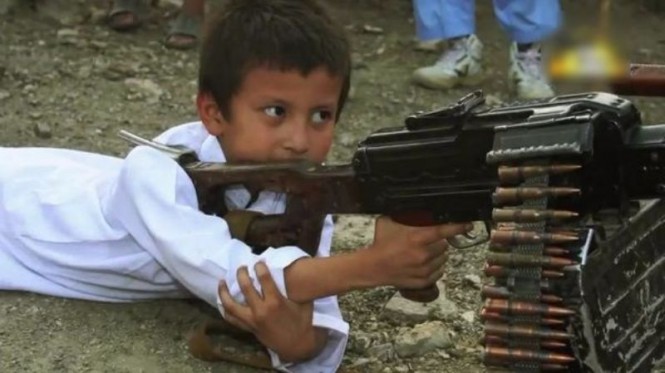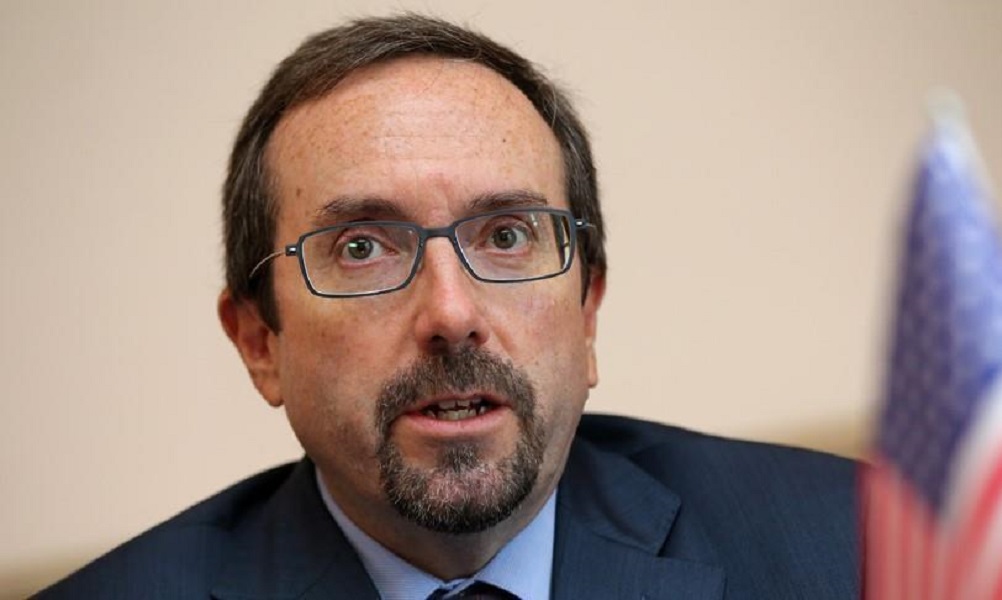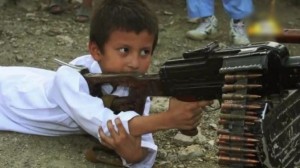Latest News
HRW reports surge in Taliban child soldier recruitment

Taliban forces in Afghanistan have added scores of children to their ranks since mid-2015 in violation of the international prohibition on the use of child soldiers, Human Rights Watch (HRW) said.
New Human Rights Watch research shows that the Taliban have been training and deploying children for various military operations including the production and planting of improvised explosive devices (IED).
In Kunduz province, the Taliban have increasingly used madrasas, or Islamic religious schools, to provide military training to children between the ages of 13 and 17, many of whom have been deployed in combat.
Although the Taliban have recruited child soldiers since the 1990s, local residents and analysts said they believe an increase in child soldiers over the last 12 months was largely due to the insurgents’ major offensive in northern Afghanistan, which began in April 2015.
Under international humanitarian law, the deployment of people under the age of 15 is considered a war crime.
Human Rights Watch interviewed relatives of 13 children recruited as Taliban soldiers over the past year, and verified these claims through interviews with civil society activists, political analysts, and the United Nations.
Despite Taliban claims that they only enlist fighters who have achieved “mental and physical maturity,” and do not use “boys with no beards” in military operations, some of the children recruited from madrasas in Kunduz, Takhar, and Badakhshan provinces are 13 or younger.
The Taliban have previously denied“the use of children and adolescents in Jihadic Operations,” but its deployment of individuals under the age of 18 violates international law applicable in Afghanistan and in cases involving children under 15 is a war crime.
The report suggests that the government and military forces (US and NATO) ban madrasas and teaching of religious education by evoking ‘The Optional Protocol’ in the ‘Involvement of Children in Armed Conflict’ found in International Humanitarian Law.
The Taliban madrasas attract many poor families because the Taliban cover their expenses and provide food and clothing for the children.
In some cases they offer cash to families for sending their boys to the madrasas. An expert on Kunduz told Human Rights Watch that traditionally, even before the Taliban established madrasas in these areas, rural and village families sent at least one son to the local madrasa because of the prestige associated with the status of becoming a mullah (someone educated in the basics of Islamic law).
In the cases of child soldiers Human Rights Watch investigated, some boys attended the madrasas in the early morning hours and then attended government schools later in the day.
Other boys who had been recruited attended the madrasas full time. For example, “Razeq,” (a pseudonym) 16, a resident of Chahardara district in Kunduz province, is a student in Class 6 at a government-run school, which he attends between 8 a.m. and noon every day. Between 5 a.m. and 8 a.m. he attends a madrasa controlled by Malawi Abdul Haq, a Taliban commander in the district.
As of late 2015, the madrasa had about 80 students, most of them children between the ages of 13 and 17. All of them are vulnerable to recruitment.
Moreover this move by HRW is a clear indication that the war on Madrasas is not over especially after the women right organizations voiced their concerns recently, followed by an Al Jazeera documentary of Madrasas in Kunduz which towed the same line as HRW and this theme was again picked up by Ashraf Ghani and Abdullah Abdullah urging Taliban to stop using child soldiers recruited from Madrasas in their latest speeches, which essentially consisted of extending an olive branch or rather the branch of surrender and shame to the Taliban.

Latest News
Pakistan extends registered Afghan refugees’ stay till June 30

Pakistan’s government on Friday extended the stay of Afghan refugees in the country till June 30, amid repatriation of illegal foreign nationals.
There are around 1.3 million registered Afghans living in Pakistan, according to a spokesman for UN refugee agency UNHCR in Islamabad, Dawn newspaper reported.
“On the recommendation of the Ministry of States and Frontier Regions, the federal cabinet approved the extension of the validity of PoR cards of Afghan refugees from April 1, 2024, to June 30, 2024,” said an official statement, issued by the Prime Minister’s Office.
The PoR cardholders will be repatriated in the third phase of the plan that will begin after the repatriation of “illegal foreign nationals” residing in Pakistan is completed, the statement added.
The PoR card holders avail schools, bank accounts and other facilities in Pakistan.
Repatriation of undocumented refugees began on November 1 and continues. More than 500,000 Afghans have been expelled so far.
Latest News
US diplomat Bass travels to Qatar and Pakistan to discuss Afghanistan, regional issues

John Bass, US acting under secretary of state for political affairs, will travel to Qatar and Pakistan April 26-30, US State Department announced on Friday.
In Doha, Qatar, he will meet with senior Qatari government officials and other diplomatic missions to discuss support for Afghanistan and shared security interests in the region, US State Department said in a statement.
In Islamabad, Pakistan, Under Secretary Bass will meet with senior Pakistani government officials to discuss a range of regional and bilateral issues as part of the U.S.-Pakistani partnership, the statement added.
John Bass served as US ambassador to Afghanistan under Donald Trump administration between December 2017 and January 2020.
Latest News
Tripartite trade meeting held in Kabul to boost regional connectivity

A tripartite meeting between the delegations of Afghanistan, Turkmenistan and Kazakhstan was held in Kabul with the aim of connecting North Asia to South Asia and reducing transit and transportation costs among these three countries, the Ministry of Trade and Commerce said in a statement.
In this meeting, an agreement was reached on the creation of a joint technical committee to continue the talks.
This tripartite meeting was held under the leadership of Nooruddin Azizi, the Acting Minister of Industry and Commerce, Vice President of Turkmenistan and Srik Zhumangarin, the Deputy Prime Minister of Kazakhstan.
Earlier, a bilateral meeting was held between the delegation of the Islamic Emirate and Turkmenistan. The ministry of commerce said the participants of the meeting discussed the construction of a large joint logistics center in Torghondi, the trilateral transit agreement between the IEA, Turkmenistan, and Kazakhstan, the expansion of Afghanistan’s railway, solving issues related to Afghan transit and export goods, and a number of other commercial issues.
-

 Latest News4 days ago
Latest News4 days agoRashid Khan named AWCC’s brand ambassador
-

 Regional5 days ago
Regional5 days agoIranian president lands in Pakistan for three-day visit to mend ties
-

 Sport5 days ago
Sport5 days agoKolkata beat Bengaluru by one run in IPL as Kohli fumes at dismissal
-

 Climate Change5 days ago
Climate Change5 days agoRescuers race to reach those trapped by floods in China’s Guangdong
-

 World4 days ago
World4 days agoMalaysian navy helicopters collide in mid-air, 10 killed
-

 Sport4 days ago
Sport4 days agoJaiswal ton powers Rajasthan to big IPL win
-

 Sport4 days ago
Sport4 days agoMawj Sahil player scores stunning halfway line goal in 1-0 win over Jawanan Wahedi
-

 World3 days ago
World3 days agoNorth Korea officials visit Iran in a rare public trip
















